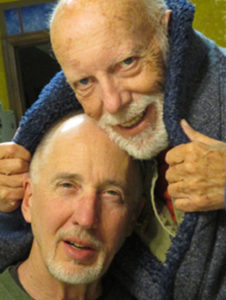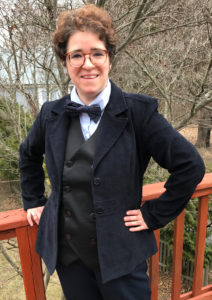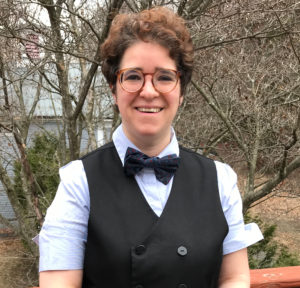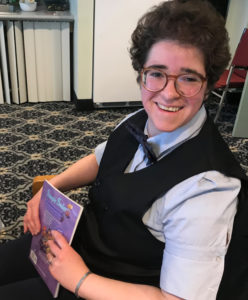Next month my church class starts an 8-week series on Emotionally Healthy Spirituality, based on the book by NYC evangelical pastor Peter Scazzero. Pre-watching the DVDs, I’m already feeling more clarity and spaciousness around difficult emotions that I often avoid through busy-ness. I dare say it’s a sign of my increased spiritual health that I’m able to be surprised and inspired by many of Scazzero’s insights, despite their being wrapped in a theological framework that differs from mine on significant points. Put another way, I wasn’t expecting my heart to be moved so often, since I’ve approached this church teaching job from the perspective of a sympathetic scholar of Christianity, no longer a full believer.
Personalization is both the strength and the weakness of evangelical Bible study. I welcome the focus on psychological introspection, contemplative time with God, and the challenges of following Jesus in our ordinary careers and relationships. These inward concerns are often shortchanged in progressive churches in favor of the social gospel and a hands-off, destigmatizing approach to parishioners’ personal lives. On the other hand, conservative exegesis can fail to challenge–or even acknowledge–the problematic power dynamics of stories where only some characters get to be fully human protagonists. In adapting the EHS worksheets, I’ve had to do some creative massaging of materials that (for example) cite the genocide of foreign tribes as merely a backdrop for the Israelite king’s spiritual development. As far as I’m concerned, in Christ there are no redshirts.
Another such opportunity arises in the materials around the Binding of Isaac in Genesis 22. According to this story, God told Abraham to sacrifice Isaac–kill him on the altar!–in order to prove his faith. Faith in what? In the promise that God would make Abraham the father of many nations, even though Isaac was his only legitimate son and Abraham and Sarah were pushing 100.
From the Biblical writers’ viewpoint, Abraham is the only “ethical subject” of this story. Isaac and Sarah don’t have to give consent. Since women and children were considered property in those days, the writers are not as troubled by the moral issues that (hopefully) make this story a showstopper for us moderns.
I’ve been thinking about ways to mine some value from this story, from a trauma liberation perspective. (In fact, my second novel-in-progress is a sort of midrash on the Binding of Isaac.) One possibility came to me as I contemplated a central theme of the EHS course: the fact that our spirituality is often unhealthy because we’ve concocted a false self to please others and avoid our painful emotions. Religious virtue can really be codependence if we’re seeking human approval instead of trusting God’s unconditional love. The course guides people to look at dysfunctional family patterns of stuffing down, projecting, or acting out our feelings.
So I thought: What if the son that Abraham has to kill is not his real son? What if he’s being asked to kill his agenda for Isaac–the mindset in which Abraham values his child not because of who Isaac is, but because of the role he’s expected to play in securing Abraham’s worldly importance? Narcissistic parenting is the idol that Abraham lays on the altar.
Viewed this way, the singular focus on Abraham is not a bug but a feature. God is telling him to die to precisely that mindset that we find offensive about the story today–the belief that children’s lives belong to their parents. God has to lead Abraham up to the brink of the ultimate consequence of his error, in order to reveal that this path leads to the opposite of God’s plan and Abraham’s deepest wish. Only by giving up control over his offspring’s fate, can Abraham become part of a family that endures.
Conversely, in our world today, we see many families that are estranged because of the elders’ refusal to honor their children’s personhood and autonomy. Maybe it wasn’t part of their plan to have a queer child, a neurodivergent child, or a child who married outside their religion or race–so they have none at all. They have sacrificed the wrong child, the real child, and live alone with their nostalgia for someone who never existed.



